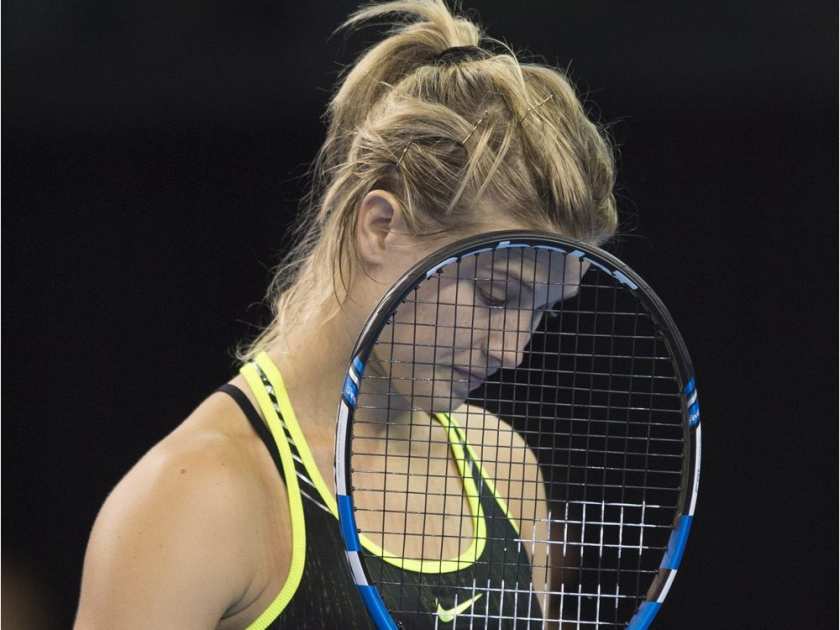Lloyd Barker: Draw Against Lowly Kansas City Felt Like a Loss for Impact

The dismissive demeanour of the Montreal Impact players at the final whistle against Sporting Kansas City, clearly demonstrated what little it meant to only pick up a point at home. Indeed, it was a case of two points lost, as opposed to a point earned for the home side in the 2-2 draw. SKC was more than ripe for picking, having won just two of their last twelve league games, but the Impact essentially let the visitors off the hook.
Here are my pros and cons from last Saturday’s match.
Pro: SKC had conceded a league low, seven goals in eight road games. The Impact simply could not have expected a better start after they scored two goals in the first half. Montreal went in the halftime break with a 2-1 lead, after Lucas Ontivero finished off a nice team move in the 16th minute, and Ignacio Piatti returned from an injury lay-off to confidently score a penalty in the 39th minute. Piatti is tied for second in the league with nine goals scored, trailing only New York City’s David Villa, who has 11.
Con: The Impact gave up two leads in the match, which is troubling on its own. But when you’ve won only once in your previous eight league games, the Impact needed to find a way to secure all three points, especially while playing at Saputo Stadium. By any means necessary — it has become that dire.
Pro: Didier Drogba assisted on Ontivero’s goal and drew the penalty that Piatti converted. Or should I say, the referee, Mathieu Bourdeau, bought what Drogba was selling, when he awarded the 39th minute penalty for an apparent foul on the Ivorian by Jimmy Medranda. Drogba’s theatrical dive grabbed all the attention, but, the forty-five yard ball played over the top to the big striker, by Kyle Bekker, was expertly delivered. It’s a ball Impact fans have not seen enough of from Bekker, but in case you didn’t know before, you know now, he’s more than capable of playing that piercing pass with regularity.

Con: Move over Thierry Henry, Dom Dwyer is the new Impact killer. Dwyer’s brace pushed his total against the Impact to nine all-time, including six in three games at Saputo Stadium. Dwyer’s ability to score is well known, yet somehow, the Impact afforded him the chance to score two relatively easy goals by his standards. Dwyer’s well-placed header in the 21st minute accentuated the Impact’s unconvincing defensive-pressure on the ball in midfield and the recurring miscommunication in the centre of the back line. SKC’s leading scorer notched his second of the day when he finished off a full-field counter attack in the 59th minute, with a shot through the legs of Impact defender Wandrille Lefevre. There is no question Lefevre should assume his fair share of the blame on both goals, but coach Mauro Biello should be just as concerned with the fact that SKC’s first goal originated from an Impact goal-kick and their second goal from an Impact corner kick. When goals are scored, the last line of defence always gets the blame — which Lefevre should accept — but the defensive transition of the Impact’s 10 outfield players as a whole is an equally worrying issue.
Pro: When you need goals, you play with two Strikers. For that I commend Biello for taking the initiative to send a clear message by starting Drogba and Dominic Oduro up top in an infrequent 1-4-4-2 formation. Drogba did his part, and the Impact generated 14 shots, seven of which were on target.
Con: If Drogba was awarded a penalty for kicking an SKC defender while attempting to shoot, then Lefevre should have been whistled for a 42nd minute penalty for a foul on Benny Feilhaber in the box. Lefevre was caught on the wrong side on Feilhaber when he challenged, and in all likelihood, no one would have argued if a penalty was awarded. Naturally, SKC coach Peter Vermes was livid with the non-call, which likely would have tied the game up at 2-2 heading into the break.
Pro: The Impact has just one win in its last nine league games, yet remains fourth in the East, only five points out of first place, with two games in hand.








